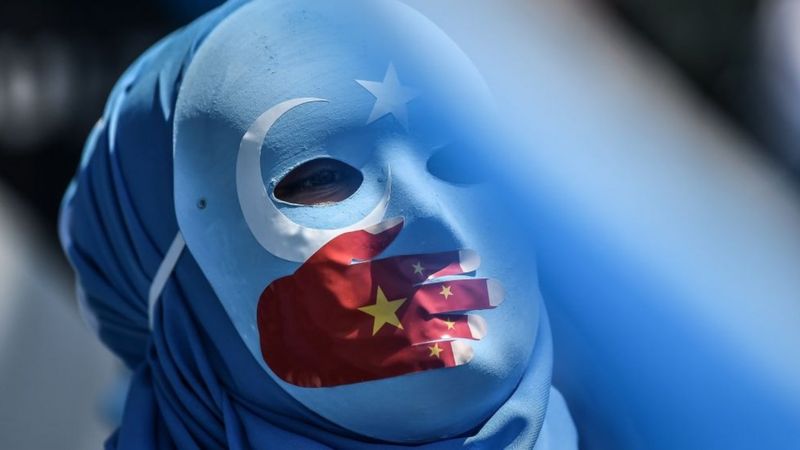McGill’s Muslim Law Students’ Association hosted a panel titled “What’s happening to China’s Uyghurs?” on Nov. 11 to discuss the Chinese Communist Party’s (CCP) imprisonment of the minority Muslim group in the Xinjiang province in northwestern China. The discussion featured Conservative Member of Parliament (MP) Garnett Genius, who currently sits on the House of Commons Special Committee on Chinese-Canadian relations; McGill law professor Jérôme Beaugrand-Champagne; and Rukiye Turdush, president of the East Turkistan Information Centre.
While historical tensions between the Han Chinese and Uyghur Muslims are deep-rooted, the CCP’s recent crackdown on Uyghurs began in 2009, when Uyghurs protested the murder of a migrant Uyghur worker. Although the CCP justified its oppression on the basis of Uyghurs being a perceived “security threat,” members of the international community have yet to define the measures—which include concentration and forced labour camps, forced sterilization, and the elimination of Uyghur cultural identity—as genocide.
Turdush described the CCP’s actions as part of a larger process of cultural genocide by which the CCP is systematically destroying Uyghur culture.
“Uyghur language textbooks have been removed from all schools in the region, Uyghur bookstores have been closed, and all geographic Uyghur names, including street and city names, have been changed to Han Chinese,” Turdush said. “Anything we can use for a sense of belonging with each other [has been] destroyed with the aim of exterminating […] the whole Uyghur nation as a group.”
The panellists called on students to support Uyghurs by boycotting brands like Nike, which profits off of the labour of enslaved Ugyhurs, and other products, like the 2020 film Mulan, which was partially filmed in Xinjiang and whose leading actress voiced support for the CCP’s brutal repression of Hong Kong protestors.
“When we buy products made by slave labour, they make more,” Turdush said.
Beaugrand-Champagne, who spent much of his career working on infrastructure projects in China, connected the CCP’s ability to commit such massive human rights violations without challenge to the expansion of its influence through the Belt and Road Initiative (BRI). The BRI, which seeks to develop infrastructure in low-income countries, has enabled the CCP to entrench the narrative that its oppression of Uyghurs is part of a fight against terrorism.
“When I was working in Africa on some infrastructure projects, some state-owned enterprises [forced] the local government to recognize the fight against terrorism that would, of course, support their claim on Xinjiang,” Beaugrand-Champagne said. “And that’s where we need to do more and fight [the CCP] every time they use those terms, to confront them.”
Various nations, including Canada, have been reluctant to term the human rights abuses occurring in Xinjiang as a “genocide” due to the international legal obligations that the word triggers. In addition to applying targeted sanctions and disconnecting supply chains from forced labour camps, Genius argued that officially recognizing the CCP’s actions as “genocide,” constitutes one of the most significant actions the federal govenrment could take to address the situation.
“The point of the doctrine of the Responsibility to Protect is that if we solidify that a genocide is taking place, then you have to do something about it,” Genius said. “But unfortunately, the link between recognition and the necessary action has simply led, in many cases, to a failure to recognize.”
Despite the CCP’s human rights abuses against Uyghur Muslims, the Canadian government has yet to take significant action. Genius pointed out that divesting funds from the Canadian Pension Plans that are currently invested in Chinese state-owned corporations is a concrete step that the government could take to address the issue instead of deferring to verbal platitudes.
“The [government’s] response is, ‘We are very concerned, we are deeply disturbed about these events,’” Genius said. “And my response back is that people that are victims of modern-day mass atrocities do not care how you feel. They care what you do.”







